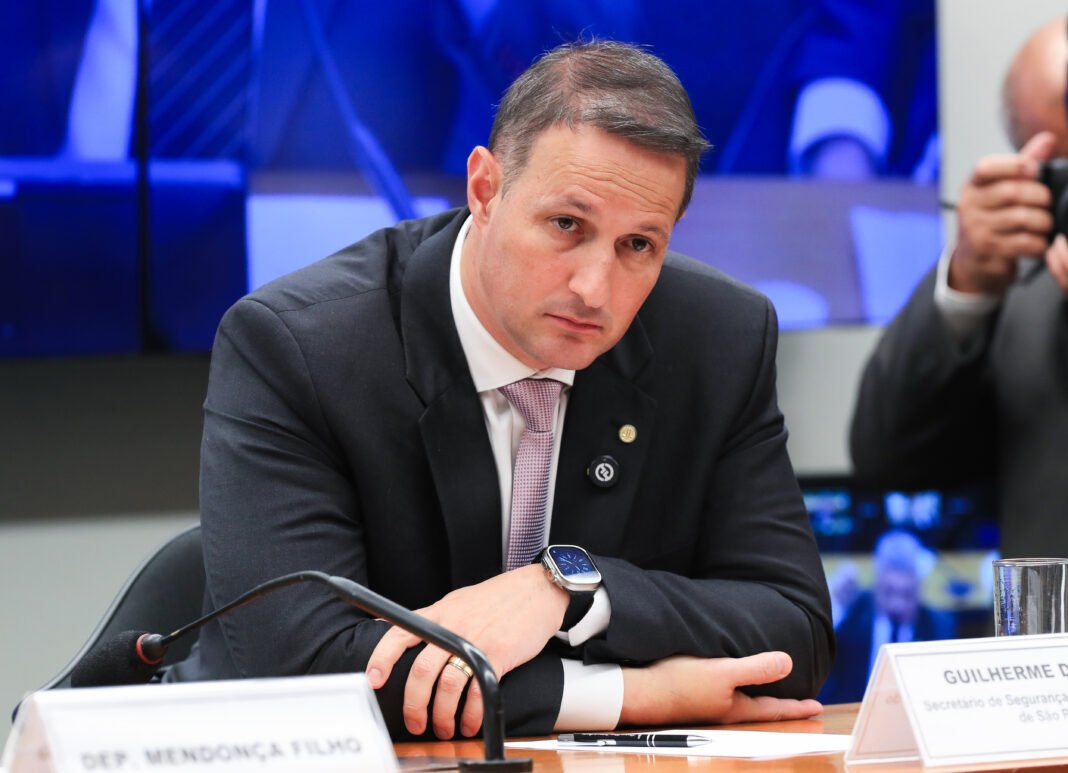The rapporteur of the Anti-Faction Bill, Guilherme Derrite (PP), announced on Tuesday (11/11) revisions to his proposal aimed at combating organized crime, following criticism that the role of the Federal Police would be reduced. The updated version addresses points that the Lula (PT) administration identified as essential. Derrite abandoned the idea of modifying the Anti-Terrorism Law—where the most controversial provisions were concentrated—to instead draft a separate statute, which he named the Legal Framework for Combating Organized Crime. In this format, the responsibilities of the Federal Police and state police remain unchanged. The Chamber is expected to vote on the proposal in plenary this week (17/11).
This Content Is Only For Subscribers
To unlock this content, subscribe to INTERLIRA Reports.
Operation in Rio
The bill gained momentum after the major operation against the Red Command in Rio de Janeiro, which resulted in 121 deaths in what is considered the deadliest security action in the country. The Anti-Faction bill was originally submitted to Congress by the Lula government. Chosen as rapporteur, Derrite took leave from his post as São Paulo Secretary of Public Security under Governor Tarcísio de Freitas (Republicanos), a political rival of the federal administration.
Factions as Terrorist Groups
On Friday night (07/11), the federal deputy presented his initial report containing legislative changes aimed at classifying criminal factions as terrorist organizations. The proposal drew on a bill authored by deputy Danilo Forte (União Brasil), which became a flagship initiative of the right and a point of dispute with the left in the Chamber. Derrite attempted to merge Forte’s proposal with the Planalto’s text. His draft also placed the investigation of crimes related to these groups under the jurisdiction of state civil police and state courts. These provisions sparked significant criticism from experts and from the federal government.
Legal Framework for Combating Organized Crime
The revised project introduces new criminal offenses, including using violence or serious threats to intimidate the population or public agents to assert territorial control; restricting or obstructing the movement of people, goods, or services; using explosives, firearms, or specialized equipment to commit crimes against financial institutions; and carrying out violent attacks against prison facilities. The new legislation, called the Legal Framework for Combating Organized Crime, establishes penalties ranging from 20 to 40 years in prison for these acts. It does not modify the existing Anti-Terrorism Law.
Federal Police Action
The original draft of the report stated that the Federal Police could only intervene in states to confront criminal organizations or factions with express authorization from the state governor. It added to the Anti-Terrorism Law a list of crimes committed by criminal organizations, paramilitary groups, or militias, while excluding the Federal Police and the Public Prosecutor’s Office from investigating them. Under that version, the authority to investigate these crimes would shift to state police forces, and the Federal Police would only participate if invited by governors, in joint operations. In the updated version, now structured as the Legal Framework for Combating Organized Crime, the Federal Police is no longer explicitly cited. The text preserves the current model, in which federal or state police forces act according to the nature of the crime, maintaining the existing division of responsibilities.
Analysis:
The latest revisions to the Anti-Faction Bill reflect an attempt to reconcile political pressures with operational realities in Brazil’s security architecture. By removing the most contentious changes to the Anti-Terrorism Law and opting for a separate framework, the rapporteur seeks to defuse criticism that the Federal Police would be sidelined. Maintaining the current division of responsibilities between federal and state forces avoids institutional friction and preserves a system that, despite its limitations, is essential for investigations that cross state or national borders. This adjustment also signals responsiveness to concerns raised by the federal government, which viewed the initial draft as a threat to its ability to coordinate high-level investigations.
The political context around the bill is equally significant. The proposal gained urgency after the lethal operation in Rio de Janeiro against the Red Command, a moment that amplified public demand for stronger tools against organized crime. Derrite’s role as rapporteur—while on leave from his position in a rival state administration—adds a layer of political tension.
Sources: G1 [1], [2], [3], [4]; A Folha de SP.




